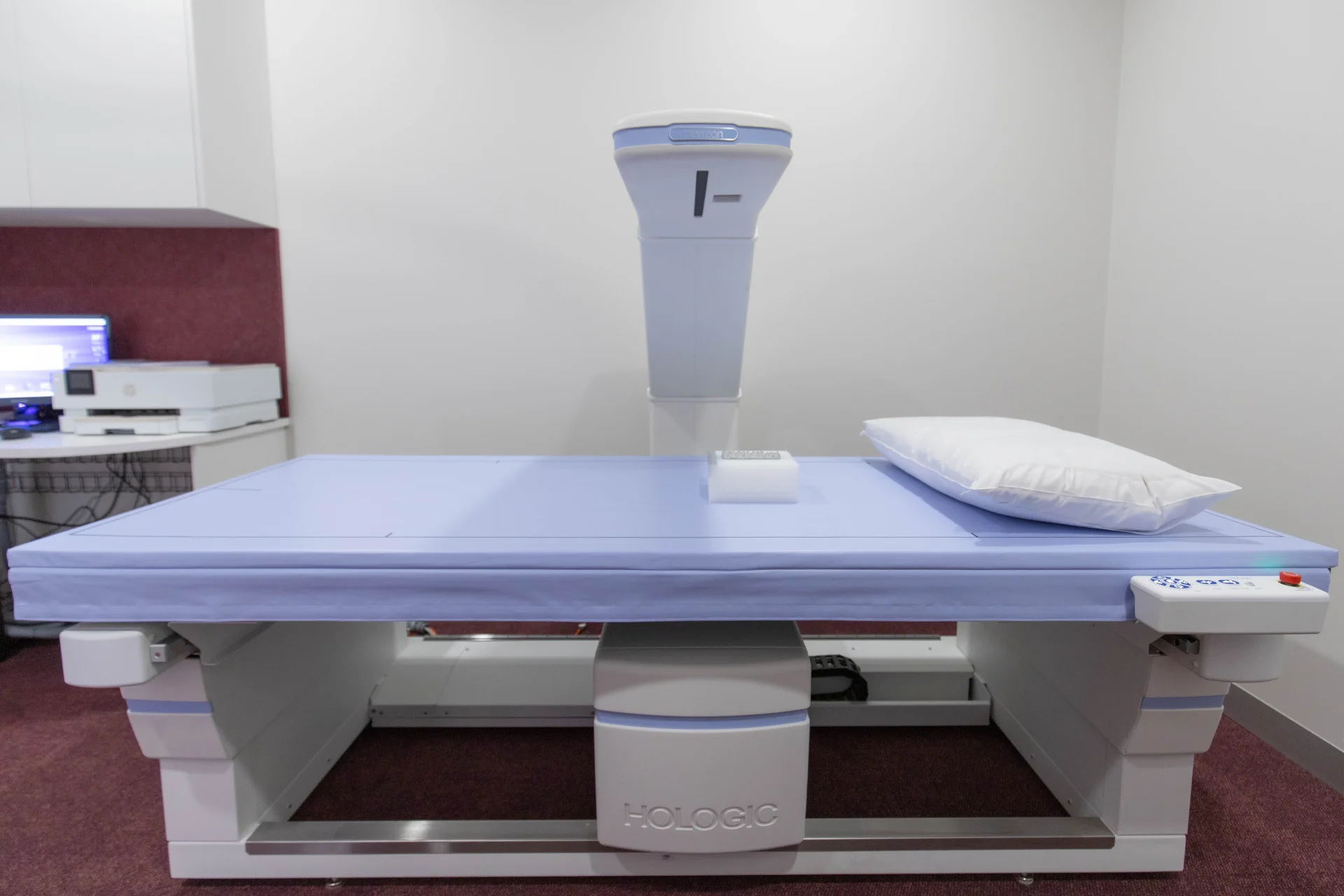Service Overview:
Bone density analysis, also known as a DEXA scan (Dual-Energy X-ray Absorptiometry), is a specialised imaging technique used to assess bone strength and density. It is the most effective method for detecting osteoporosis and assessing fracture risk, particularly in older adults or individuals with risk factors for bone loss.
At Victorian Imaging Specialists, we offer low-radiation DEXA scans that provide highly accurate measurements of bone mineral density (BMD), allowing doctors to evaluate the risk of fractures and monitor bone health over time.
Common Uses of Bone Density Analysis:
- Diagnosing osteoporosis and osteopenia
- Assessing fracture risk, particularly in postmenopausal women and older adults
- Monitoring bone loss progression over time
- Evaluating bone health in individuals with conditions such as osteomalacia or chronic steroid use
- Assisting in the management of bone-strengthening treatments
What to Expect During the Procedure:
A DEXA scan is quick, painless, and non-invasive, usually taking 10 to 20 minutes. Patients will lie on a padded table while a scanning arm moves over the body, measuring bone density in key areas, such as the spine, hip, and forearm. There is no need for injections or contrast dye, and radiation exposure is minimal.
Preparation Guidelines:
- No fasting is required, but patients should avoid calcium supplements for 24 hours before the scan
- Comfortable, loose-fitting clothing is recommended, with no metal zippers, buttons, or jewellery
- Patients who have recently had a barium study or CT scan with contrast should wait at least one week before a DEXA scan
- It is important to inform staff if there is any possibility of pregnancy
Safety Information:
A DEXA scan uses very low doses of radiation, significantly lower than standard X-rays. The procedure is safe, quick, and highly effective for monitoring bone health.
Results and Next Steps:
A specialist radiologist will analyse the scan and provide a bone density report to the referring doctor. Based on the results, patients may be advised on dietary changes, exercise routines, or medications to help maintain bone strength.
For more information or to book a bone density analysis, please contact your nearest VIS clinic.
